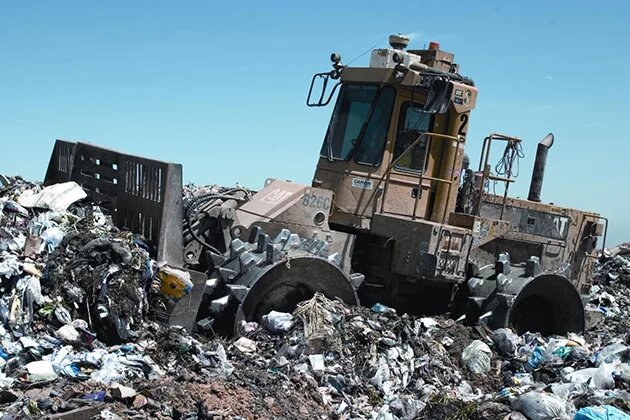
Every year in July, a peculiar form of metamorphosis can be observed in Beirut when the country develops similarities to Europe – to Naples, that is: Suddenly, piles of rubbish can be seen towering the streets. At temperatures of around 40°C, the entire city begins to reek like a landfill.
There are two reasons for this development: The annual contract between the state and the Naame landfill, which receives Beirut’s refuse, expires every July. The landfill has therefore been closed since July 17. The contract with the waste management company, which is usually only renewed following tough negotiations, is not the only issue: The contract covers the collection of waste, but it remains the government’s responsibility to make landfill sites available.
Waste management is a profitable business in Lebanon: 160 USD/tonne is how much the company charges the state for the service. That is double and triple the price other states pay for waste disposal. Waste management company Sukleen lines its pockets while residents have trouble breathing freely - especially those living in the coastal town of Saida. One of the country’s largest landfill sites is located here. By now, approximately four times more waste has been dumped here than originally planned for. The only reason there is still space to deposit even more refuse is its location at the coast. Especially during the last year, wind and erosion have caused half of the accumulated garbage to collapse into the sea.
Even though it is clear that the omnipresent waste does not make Lebanon an attractive country, nobody seems to be willing to tackle the problem at its roots. It is rather delayed time and time again – despite the fact that several organisations have undertaken numerous attempts to find a viable solution over the years. Towns such as Byblos, which has proactively dealt with the matter by dramatically reducing the amount of incoming waste, have demonstrated that there are other options available.
Though residents are dissatisfied with this situation, they know their concerns usually fall on deaf ears. Thus, they use the hottest period of the year to blockade the street leading to the landfill, in an attempt to take the waste management problem to extremes. And sure enough, the signal they sent out does not fail to draw the country’s attention to the issue. “In Lebanon, one year few months without a president, nothing happened, two days without garbage collectors, the country is in chaos,” Twitter user Ali Hashem comments on the situation.
Lebanese people are torn between desperation and humour. “This morning, they set fire to the trash underneath Salim Bridge - seven or eight containers, with garbage scattered around them,” my colleague observed, “The fire brigade was already attempting to extinguish the blaze but the tarmac was so hot it had already started developing bubbles.” Very practical suggestions on how every person can do their part to ease the waste problem are made by Karim Chehayeb and Sarah Shmaitilly on their “Beirut Syndrome” blog. Recycling in Lebanon is still in its infancy but there are collection points for glass, paper and scrap metal available.
By now, garbage has been collected in Beirut city but so-far, negotiations with different stakeholders have only resulted in temporary and random solutions, not up for settling the problem on the long-term let alone in a sustainable way.
The stench of the crisis lives on.
---
Translated from the German by Christine F.G. Kollmar